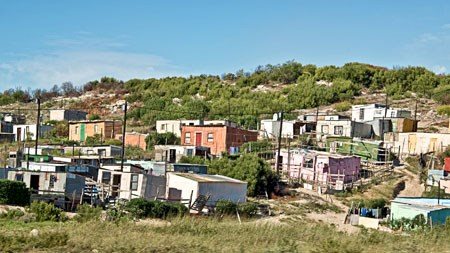What is a good property market and who gets to decide? One of the biggest questions at dinner parties, in the press and I am even blogging about it, is the current state of the property market, especially with the recent spate of Malema-isms. Apparently after a slight improvement over the first quarter of this year the market is flattening again, and the paranoia of anticipated interest rate increases is the latest concern on the lips of many. But as the old English proverb states, one man’s meat is another man’s poison, then I would like to get you to think about it without noise.
I thought I would share a story about a fellow who was very good at accumulating wealth, despite his humble beginnings and limited formal education. I suppose you could call Kieth my “rich Dad” if you were a Kiosaki fan. In fact he was my Uncle. Through the years that I watched Keith build a modest empire he never used a computer or read a newspaper. You would think that the ability to do detailed analysis and being on top of current affairs is vital for a captain of industry? But Keith relied on paper, a jar of pencils and a calculator on his desk to make decisions, and it worked for him. His shortcomings were in retrospect one of the reasons why he was successful. You see he was not clouded with a noise of unnecessary information. He probably would not have paid too much attention to the ranting’s of the Malema’ s of the day, but focussed his energy on the simple fundamentals. “Buy for R1 and sell for R2” or “I can get more rent for this property than it costs me to borrow the money”.
So let’s take a simple look at today’s property market conditions through Keith’s eyes.
Developers produced more stock between 2004 and 2009 than the market could absorb, and there is still surplus stock of new built (therefore maintenance free) houses, townhouses and flats for sale, many directly from the developer at 2007 prices, including VAT (so no transfer duty). The previous interest rate cycle has put the average over indebted South African household under significant financial distress sprinkling the market with some desperate sellers, pressured by the banks to sell and take a loss or face repossession. At the same time Interest rates are at their lowest since 1973 so cost of capital is cheaper than it has been for nearly 40 years. There are more tenants in the market as a result of tighter lending criteria by the banks and first time buyers are less able to move to becoming home owners. And finally, rentals are firming. From an investors point of view this looks like the perfect feast. I am pretty sure I know what Keith would do.
But in this world filled with information and data, investors seem to be staying out of this “bad” residential market.
According to the 4th quarter FNB Estate Agent Buy-to-Let survey, buy-to-let buying was only 7% of overall transactions in the period, down from over 25% at the peak of the “good” market in 2004
Of every 4 buyers in early 2004 at least one was buying for investment purposes! Consider the amount of supply of units that came onto the market for rental often at the same time, as developments completed, and in the same areas, where land was available for development. And this was the good times, apparently. Why do we get caught up in the spin of it all?
Fundamentals matter in real estate investment more than anything. Real Estate is simple, there are fewer variables and cycles happen more gently. You should not consider investing in residential property as a short term investment, buy well, don’t over gear, hold and don’t worry about the cycles.
Ask me if it’s a good time for residential real estate investment and I will stick my neck out and say yes – it always is. Tune out the noise…


